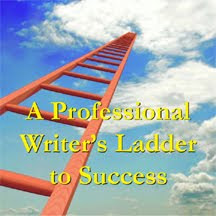On Gaslighting
I've heard the term "gaslighting" used a lot in the past year, usually to refer to anyone who expresses a point of view alternative to the mainstream media's narrative. Let's explore a little bit about the term: its origins, meaning, and implications for civil discussion of issues in our society.What is Gaslighting?
Gaslighting is defined as psychologically manipulating someone by convincing them that what they are observing with their own senses is not true. Using the technique on someone causes them to doubt and second-guess everything.The term originated with 1938 British play Gas Light by Patrick Hamilton. In the play, the villain drove his wife insane by convincing her the gas-powered lighting in their home was at the usual brightness, when it was actually growing dimmer while he was using lights in the attic to search for jewels hidden there.
As used in today's heavily divided society, gaslighting means to try and convince people that what they are observing is not true. The technique is often used by the media and those in political office to sway voters and the general public. The term can also be used to discredit someone's argument, even if that argument may have validity. And that's where it grows even more troubling. When you hear someone accused of gaslighting, how do you know the accuser is not also using the same technique to dismiss a valid argument that contradicts their own?
Why is Gaslighting a Problem?
There was a time when journalism students were taught to "triangulate" their sources. In other words, to confirm a fact by consulting three separate sources before using it in a news story. But the news world has grown more competitive than ever, with multiple outlets on a 24/7 news cycle. Each is rushing to beat all the others to air with a story. Those stories must also be as sensational as possible to draw more views, which means the news outlet can sell more advertising, which keeps them in business and pays their staff's salaries. With media companies trimming their staffs to the bare bones, the competition is fierce to be the first to break a news story. Few journalists working for major news outlets today have the time to find three corroborating sources for any big story.
News outlets also have bias, as I've discussed in previous blog posts. This is true for all of them, regardless of their past reputation as an institution of reliable news. Reporters are encouraged to write from a particular viewpoint, and typically add their own personal biases to stories. Their editors or producers further skew the viewpoints of those stories to fit the outlet's editorial stance. Those unaware this is happening may think they are receiving unbiased news, when it's anything but. Once we develop an opinion on an issue or a political candidate, we seek news that reinforces our own position, bringing our own biases into the equation. You can see how it's easy for people to become entrenched in one position and unable to debate it with anyone whose opinion may differ from theirs.
Unfortunately, we rely on news outlets to tell us what's going on. They are closer to the sources of news stories; few of us personally know any politicians or others directly involved in major news stories. Many political issues are complicated and can have backstories and context essential to a complete understanding of them. And who has time to spend all day tracking down original sources when we all have careers and lives? Isn't that the job of professional journalists?
The water has been further muddied since the rise of the internet, making it possible for anyone to become an amateur journalist, presenting news to the world from their own point of view. Those posting stories and videos, some looking quite professional, may have no journalistic training at all, or they may be a journalist who has been pushed out of the mainstream media, trying to build their own media empire.
Given all these factors, it would not be at all difficult for someone to successfully gaslight an audience, detracting their attention from the facts by spinning things a certain way. Talk-radio hosts are often accused of it, especially those espousing conservative views. But who's to say that their opinions are not getting closer to the actual truth, and those accusing them of gaslighting are engaging in it themselves? Presenting an opinion contrary to the mainstream often opens one up to ridicule or alienation. But consider the man who pointed out that the emperor had no clothes. Presenting an opinion different from the mainstream does not make that dissenting opinion invalid. And calling that dissenting opinion "gaslighting" can discredit a point of view that may have been the closest to reality.
How Can I Fight Being Gaslighted?
Be aware of your sources. By that, I don't mean to automatically write off some sources as untruthful, while upholding others as gospel truth. That's the opposite of what you should do!
What I mean is that you should be aware of the editorial slant of all the news sources you consult. Who owns them? Who funds them? What are their overreaching motives for putting forth one particular point of view or another?
Try to put news stories into context. In a more multicultural world, it's easy to dismiss behaviors as wrong or immoral because they differ from your own. Examine the backstories of the people involved in things, their cultures, and their biases that are reflected in their behavior and their speech. Most people are doing the best they can with what they know and understand. Hold off on formulating an opinion until you have enough facts to decide.
Try to put news stories into context. In a more multicultural world, it's easy to dismiss behaviors as wrong or immoral because they differ from your own. Examine the backstories of the people involved in things, their cultures, and their biases that are reflected in their behavior and their speech. Most people are doing the best they can with what they know and understand. Hold off on formulating an opinion until you have enough facts to decide.
Next, you should seek news on sources offering a variety of viewpoints. If you have only relied on only one or two in the past, this may shake you a bit when you first try it. A lot of what you're hearing may sound like it's untrue. This is where you need to keep an open mind: being exposed to new ideas is healthy. It helps you broaden your thinking and develop a greater understanding of the world.
With every additional viewpoint, you gain a more complete picture of the truth. It's like the story about the blind men who encountered an elephant. When asked to describe the elephant, the blind man who felt its trunk said, "An elephant is like a snake." The blind man who felt the elephant's leg said, "An elephant is like a tree." The blind man who felt its tail said, "An elephant is like a rope." All were reporting facts from their own perspective, but each of those perspectives was limited. Only when examined from a variety of viewpoints can you begin to fathom what an elephant is like. There are some completely crazy theories on things floating around out there, and there are also some quite plausible ones that reach completely different conclusions after examining the same facts. Somewhere in between all those stories is the actual truth behind them.
Don't seize upon some story merely because it backs up your own opinion and run with it. Do a little investigation work to see if there are other viewpoints on the same story. It's fairly easy to do this online; Google the essential idea of the story and see what comes up. Can you find other sources that verify the story? What sources contradict it; are they sources you trust? Do they present any new facts you hadn't heard before?
As you read news from more viewpoints, you also improve your ability to spot the bias inherent in each of them. You'll become familiar with some, and yes, you'll gravitate toward those that back up your own biases. It's human nature. But try to understand that you're doing that. It will help you to debate issues with greater civility rather than getting into a name-calling shouting match with people who disagree with you.
On most major news stories, the world may never know all the actual facts that were the seed of the story. All we can do is try to gain enough variety of perspectives on important issues that we can start to gain a glimpse of the underlying truth.
I challenge you to read, watch, or listen to something today that disagrees with your own political point of view. Get out of your comfort zone, out of your hall of mirrors always reflecting back your own viewpoint. Don't let what you discover trigger your automatic defense mechanism. Try to see the story from the other person's perspective. Who are they? What is their background? Why do they perceive the facts differently from you? I promise you that if you do this, and start doing it before formulating your own opinions on things, you'll have a broader view of the world and be able to discuss volatile issues without losing your mind and getting angry. Try it and see!









No comments:
Post a Comment